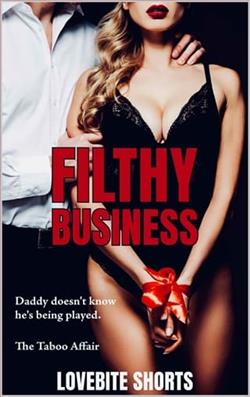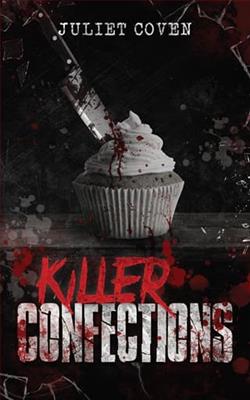Page 49 of My Favorite Lost Cause
A group of us took a picnic onto the Bluff. Sam came, which was lovely, but William showed up for the latter half and just laid there in the grass, smirking, as if he was smarter than all of us. It’s possible heissmarter than all of us—Sam said he had the highest marks of anyone in their class—but he doesn’t have to be so smug about it.
George said he hoped to marry soon, looking at me, and William said he was too young to have decent judgment. I hate him.
George still hasn’t returned Mama’s broach. I’m worried he means to keep it. She’ll never forgive me if she finds out.
May 27, 1916
Well, a day that began catastrophically has ended all right. It was my worst fear come true: Mama asked for her broach, but it was still with George, and I couldn’t exactly walk up to his door and demand it, could I? So I told Mama I would go upstairs to get it and then went down by the water and cried instead. That’s how William found me: curled up in the gazebo near his cottage, crying my eyes out. He asked what was wrong, and I have no idea why I told him the truth. He laughed and I was so angry, but an hour later, he returned—I was inside by then, on the cusp of telling Mama the truth, and he slipped it into my pocket. When I felt itsweight there, I could barely believe it. I’m not sure what he said to George, and I don’t even care. Maybe William isn’t so awful after all.
Oddly, William makes me think of Charlie: Charlie, doing push-ups in the grass, Charlie rushing back to New York to retrieve the puppies.
I shut the journal and go upstairs to Margaret’s room, staring at myself hard in the mirror hanging there.
It feels as if my life and Margaret’s are combining, somehow. As if I’m now half me and half her. It’s got to be her influence, making me think of Charlie in the way I have been.
“Stop, Margaret,” I warn. “I’m my own person. You don’t get to decide who I like.”
For once, the room is silent. There’s no euphoria and no grief.
There’s only me, admitting that it’s possible Margaret has nothing to do with it, and that these feelings for Charlie may have been there all along.
Charlie and Elijahare stuck in the basement for most of the day, fixing some new area that’s letting water in. I begin stripping wallpaper in the rooms that must have belonged to Leo and Ray, but I can’t stop thinking about the journal...despite the fact that I’m not sure it’s in my best interest to keep reading.
I look up the house online, but find very little aside from the fact that it was “built by a wealthy judge for his wife and five children.” The father’s name was Richard Ames, but even when I go into ancestry databases, I find nothing. There are plenty of Richard Ameses, but none who fit the profile—and how is that possible? He had five kids. How can there not be amillionfamily trees emanating from this branch? Perhaps Charlie’s joke about untimely deaths wasn’t so funny after all.
Charlie doesn’t need the car that afternoon. I drive into Oak Bluff and ask Martha where I might find historical info about the town. Oak Bluff is too small for a library, she says, but there’s a little history section in the town’s administrative office.
I follow the directions she’s given me down the street and the receptionist points toward a small shelf to the left. It mostly seems to hold awards for things like “best small-town parade,” but there are also a handful of books.
“Look forA History of Oak Bluffby HM Fletcher,” she says. “But I can’t let you borrow it since it’s our only copy.”
I find the book easily and take a seat in the lobby as I begin to thumb through.
The author seems more enamored of the pre-Civil War history than the post-Civil War history. There’s an entire chapter about the town’s winter ball in 1860, but the decade following the war’s end is summed up in a single sentence:Devastated by the war’s toll, Oak Bluff fell into despair.
It picks up again in the late 1800s, when families began moving here from Charlotte. A school was built in 1890, and “banker Edmund Graves moved here, to great acclaim, with other well-off families taking a cue from him.”
The father of George, the broach thief, I imagine.
The only mention of Riverbend is again a discussion of Richard, the patriarch—a successful lawyer back in Charlotte before he was elected a judge in Oak Bluff. Obviously, his daughter wouldn’t have been encouraged to take up a career, but it’s a little surprising that none of the sons are referenced. And I don’t think anyone was murdered in the house, either. If “Mary Leavitt’s famed blueberry pie” warrants a full page in this book, a murder would at least get a mention. But then, what the hell happened to them all?
I return the book to its shelves and walk to the receptionist’sdesk. “Does the town have a graveyard?” I ask. “Like…with older graves?” Knowing when they all died might answer some of my questions, if not all of them.
She nods. “There’s one in back of the church on Magnolia Street, although any family with a property the size of yours was buried on the grounds. That’s typically the way it was done.”
Except do I even want to know if that’s the case? A grave is always bad news, always sad, even if Margaret’s tells me she died a proud widow and a mother of ten. I think I’d rather try my luck with the journal instead.
June 2, 1916
Today was the last day of school. The boys are all home, which means the house is very lively but also very full. Sam has been offered a job in Greenville, and I hope he doesn’t take it. Greenville is very far away. We’ll never see him. And what happens if he goes? William is working for Papa, but he’s here as Sam’s friend. He might decide to go as well.
June 3, 1916
Today, the President issued a new act doubling the size of the army, and now all the boys are talking about joining up. George said he’s not going to fight if we end up in the war, and William called him a coward. I hate to say it, but I rather agree with William.
June5, 1916
Sam is not taking the job in Greenville. Mama put her foot down. I’ve never been so glad.















